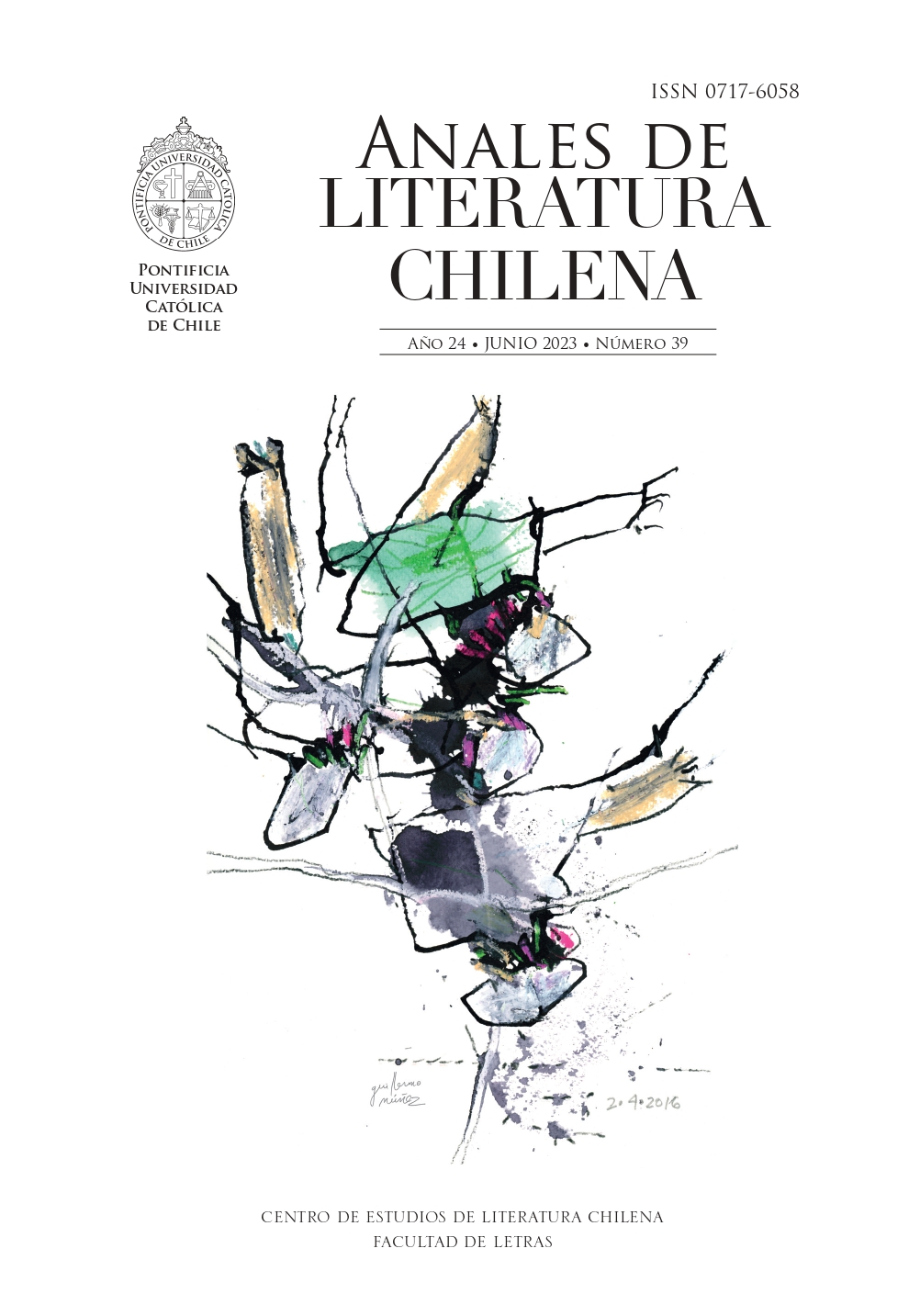FICTIONS OF MUTENESS AND SELF-REFERENCE: "THE DOUBLE VOICE" IN "TRASANDINA" BY IVONNE COÑUECAR/ TRANSIT AND UPROOTING
DOI:
https://doi.org/10.7764/ANALESLITCHI.39.04Keywords:
Trasandina, Ivonne Coñuecar, the double voiceAbstract
This article examines Trasandina (2017) by Ivonne Coñuecar with the aim of analyzing how the concepts of girl, mother, mountain range, trasandina, Ivón, and others, configure an uprooted identity in the enunciating lyrical subject, which returns to childhood in order to reconnect with their true homeland. Using Alicia Genovese’s concept of the double voice, this article’s hypothesis is that the voice that speaks in Trasandina is divided by a double temporal identity (past/girl-present/woman) and a double position of enunciation with respect to space (childhood/transit-adulthood/uprooting). In addition, the study affirms that the dualities contained in the discourse of the lyrical subject also constitute two positions in relationship to the fictional world proposed in the work: 1) muteness and 2) self-reference.
Downloads
Downloads
Published
How to Cite
Issue
Section
License

This work is licensed under a Creative Commons Attribution-NoDerivatives 4.0 International License.


